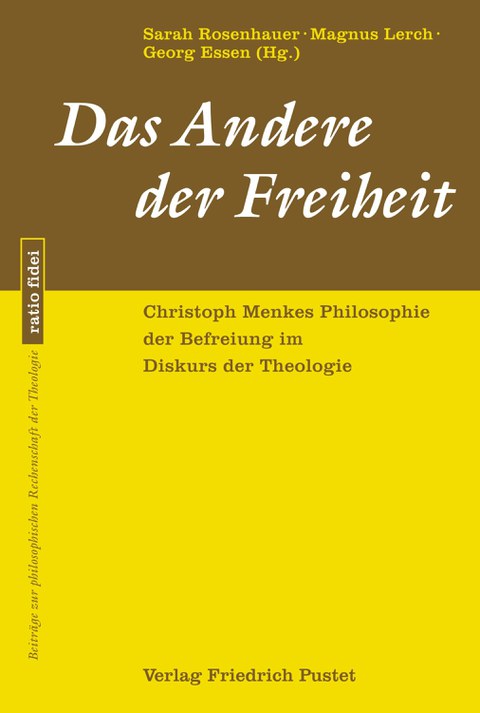Sep 16, 2024
Publication: The Other of Freedom
The ratio fidei series has published the anthology "Das Andere der Freiheit.
Christoph Menke's philosophy of liberation in the discourse of theology"
published by Sarah Rosenhauer together with Magnus Lerch (Cologne) and
Georg Essen (Berlin). It goes back to a conference
which Sarah Rosenhauer organized as part of her DFG project "Pneumatic
Materialism. Foundations of a Materialist Theory of the Holy
Spirit" at the HU Berlin in July 2022. There, theologians
theologians and philosophers met there to discuss the theory of the
Frankfurt philosopher Christoph Menke on the question of the other of freedom
- its pre-subjective ground, its non-autonomous entanglements,
its emphatic self-transgressions. This question
is not only of great relevance for theology. It is also at the
center of the currently much-discussed philosophy of liberation
Menke: True liberation, according to Menke, is based on an other of freedom.
freedom. The volume resulting from the conference brings together for the first time
the first time, it brings together various contributions which, in
of liberation theologically on the question of the other of freedom.
other of freedom. The focus here is not least on the question of the
relationship between theology and the modern discourse on freedom.
In her contribution "Recognition as a gift of freedom. Forays around
a Hegelian basic figure with theological intent", Sarah Rosenhauer
Rosenhauer explores the potential of the concept of recognition for a political
theology of love. It is "not a matter of encouraging people
normative appeals to a strict regime of recognition or love [...].
or love regime [...] Rather, it is an attempt to follow the example of
example of Jesus to give space to the liberating work of the Spirit (individually and
institutional), to prepare a place internally and externally where love
where love can take place. Therein lies the difficult
bearable and at the same time ... gracious: that what we need most is not within our
is not in our power; that the kenotic revolutionization of
revolutionizing God from a God of sovereign omnipotence to a God of
(dis)powerful love can only be understood and experienced by us if we
perform this kenosis on ourselves: to give up our powerful self-management
so that that which is greater than our doing can take place:
Love. As contingent and unavailable as love is, it is indispensable for the political.
indispensable for the political. For: if we did not have love, then the most
the most evident argument and the most indisputable proof of validity would not be
sufficient to open us up to the other - especially the one who is not like us,
who alienates us - and to show solidarity with him in practice, not just in thought.
thoughts - to show solidarity with them."
Link to the publisher's page: In detail | Friedrich Pustet GmbH & Co.
(verlag-pustet.de)

